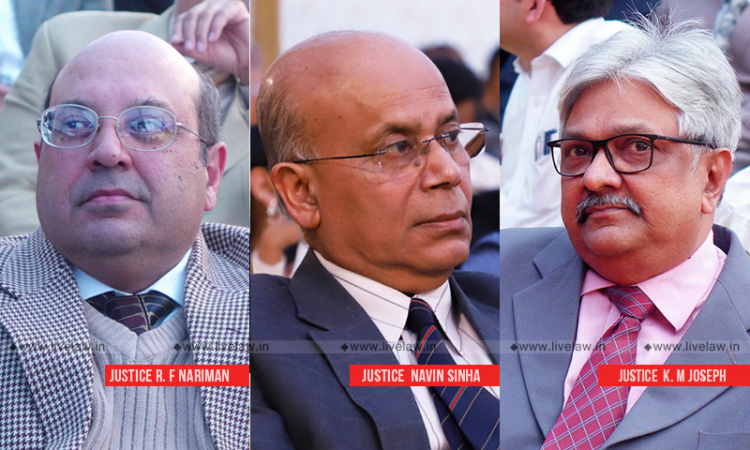Supreme Court Upholds Sections 3, 4 & 10 Of IBC Amendment Act 2020
LIVELAW NEWS NETWORK
19 Jan 2021 4:14 PM IST

Next Story
19 Jan 2021 4:14 PM IST
The Supreme Court on Tuesday upheld the constitutional validity of Sections 3, 4 and 10 of the Insolvency and Bankruptcy Code (Amendment) Act 2020.A bench comprising Justices RF Nariman, Navin Sinha and KM Joseph had considered the petitions. Justice KM Joseph authored the judgment delivered in Manish Kumar v Union of India and others and connected cases.While upholding the amendments, the...
